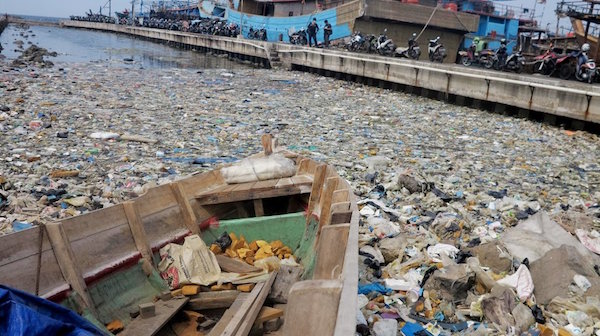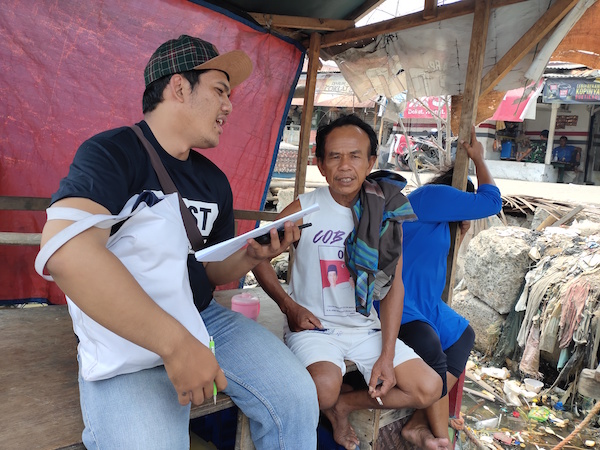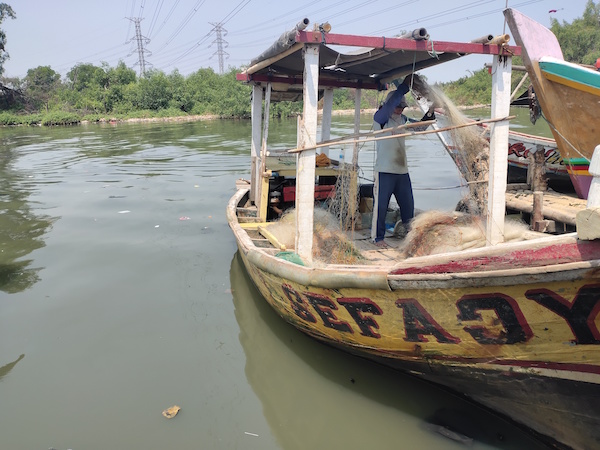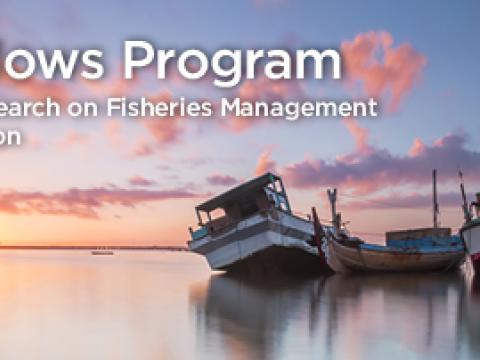MFP Stories From The Field: The threats of Plastic Waste to Small-Scale Fisheries in Jakarta
Fellow: Andi Sagita
MFP Project Title: Model of Marine Plastic Management for Small Scale Fishers in Jakarta
Waste management is a fundamental challenge for a developing city like Jakarta. In particular, plastic waste has become one of the main threats to coastal and marine ecosystems. In these areas, infrastructure and waste collection services are available, yet limited, and residents do not have access to information about how to properly dispose of waste. Lack of facilities for disposing of waste also contribute to littering behavior. The combination of lack of infrastructure and information has created the perfect situation for plastic pollution to spread. I became curious about how all this plastic was affecting local fishers, so I decided to analyze the economic impact of marine plastic waste on the small-scale fisheries on the Jakarta coast.
As I began my research, I took a ride with local fishers to circle around the area. The view was quite disturbing; I saw more plastic than fish! It is not hard to see the problem, yet it is still shocking to see so much plastic waste accumulating in the water.

According to the World Bank’s 2018 Marine Debris Hotspot report, the main areas where plastic waste is entering the marine environment in the tidal areas of Jakarta are Kamal Muara in the West, and Kali Baru Cilincing and Marunda in the East. The report notes that 75% of the 165 tonnes of plastic waste generated in Jakarta eventually ends up to the coast. This concentration of plastic in the water threatens marine life and makes fishing much more difficult due to increased danger to the boat, damaged fishing gear, and poor quality of catch.

Local fishers have adapted to this situation by catching smaller fish and using different boats to go farther out to sea. Both of these adaptations have economic and ecological consequences. Fishers have been forced to catch smaller, younger fish, which impacts the species’ ability to reproduce and maintain a healthy population. Although the fishers are fully aware of the risk of catching small fish, they cannot go back empty-handed and must cover their operating costs. This situation will likely threaten both the fishers’ livelihoods and the marine ecosystem in the near future.
In my visit, I noticed the coastal area was cramped with fishing boats under 10 GT in size. With this type of boat, fishers can go farther out to sea where they have a better chance of catching large fish. They also increase their risk of being trapped in a storm. Traveling farther from the coast also increased their fuel costs, which can be burdensome for small-scale fishers.

The reality is that the municipal government is overwhelmed and unable to handle the plastic waste situation. Systems for cleaning, transporting, and processing plastic waste have not yet been well developed, and plastic production and consumption have not been suppressed. Jakarta’s fishers are bearing the burden of this lapse in economic, social, and ecological terms. It is my hope that this research will contribute important information on the economic impacts of marine plastic waste on capture fisheries in Indonesia.
The Marine Fellowship Program is implemented in partnership with the Faculty of Fisheries and Marine Sciences of Bogor Agriculture University (FPIK-IPB) and is made possible with generous support from the David and Lucile Packard Foundation.

